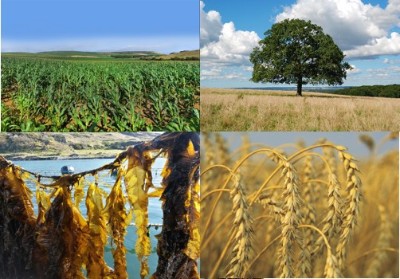To access our News Reviews, subscribe to our Information Package free of charge here.
Foreword
 This month’s review includes news on the National Audit Offices (NAO) report of conditions in
This month’s review includes news on the National Audit Offices (NAO) report of conditions in
which the government considers biomass as a sustainable, low-carbon alternative to fossil fuels. Although DESNZ considers current measures are proportionate and provide sufficient confidence in the credibility of the sustainability, the NAO disagrees. The report sets out its view that the lack of a thorough evaluation means that the government cannot demonstrate that its current arrangements are adequate to fully meet sustainability standards. DESNZ current monitoring arrangements rely on a combination of information provided by generators, third-party certification schemes and limited-assurance audit reports. NAO argues that the government should review these practises so that it gains better clarity on the organisations involved and subsequently, perform a resourceful allocation of funding. This will help adapt the assurance approach and support plans to strengthen sustainability criteria with increasing global demand for biomass.
In terms of partnerships for biorefinery developments, Acelen Renewables becomes the 50th site to adopt Honewell’s Ecofining™ technology to produce (SAF) and renewable diesel. The fuels will be processed at Acelen's facility in Bahia, Brazil, from a blend of inedible seed and waste oils. LG Chem and Enilive have signed a joint venture agreement for a SAF-producing biorefinery using the latter’s Ecofining™ technology to process renewable feedstocks. The initial plans position the production plant at LG Chem’s existing integrated petrochemical complex in South Korea with potential inauguration dates within 2026. The agreement also details that its annual capacity could reach up to 400,000 tonnes of feedstock processing to produce SAF, HVO and bio-naphtha.Sugar Valley Energy (SVE), a new 65-hectare bioenergy campus planned in California’s Imperial Valley, intends to include a biorefinery that could produce up to 61 million gallons per year of SAF derived from sugarcane. In addition to SAF, sustainable energy products produced at SVE will include low-carbon sugarcane ethanol for transportation fuels blending, renewable natural gas (RNG), renewable diesel (RD), electricity, CO2, hydrogen, and local wastewater treatment
connections..
Other News this Month Includes:
Policy
- The government’s support for
biomass
- Nufarm pushes biofuel, crop
protection in decarbonisation push
- More...
Markets
- S-OIL to produce bio-based, lowcarbon, eco-friendly products
- Soybean oil rapidly gaining ground as renewable diesel
feedstock
- TotalEnergies converts feedstocks from plastic waste into circular polymers
Research & Development
- Biomethane Industrial Partnership report recognises “urgency” of securing sustainable biomass
feedstock
- CO2 from wastewater sludge becomes new feedstock for biobased polymers
- The ABC of UCOs – what are used cooking oils and how can they be used in a more circular economy?
Wood & Crop
- WRA responds to NAO report on the government’s support for biomass
- Drax responds to National Audit Office report on government’s support for biomass
- Study: Burning wood pellets for energy endangers local communities’ health
Biorefinery
- LG Chem and Enilive: a joint venture agreement for the biorefinery in South Korea
- Acelen Rewewables selects Honeywell for SAF and Renewable diesel fuel production
- More...
Events
Feedstock Prices